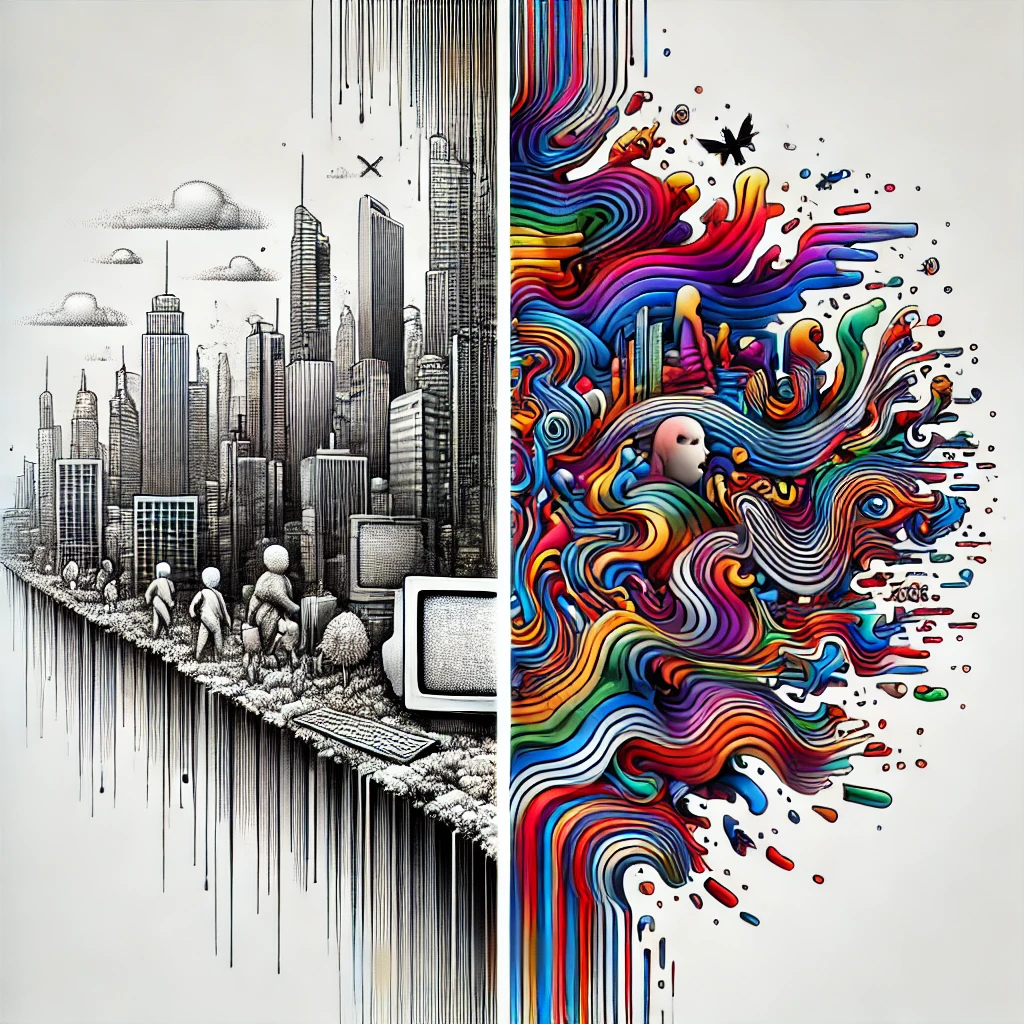I’ve been thinking about all the different ways we’ve become domesticated like animals in modern life. The classic examples from Industrial Society and Its Future still hold true today and were an eerily accurate prediction of where we would end up. Take something as simple as waiting at a traffic light. Even when no one is around, we wait for the light to turn green. Why? Because we’ve been conditioned to obey the system, fearing punishment, whether it’s a fine for running the light or the potential hassle of an interaction with law enforcement.
One of the more disturbing trends lately is the push to turn everything into a subscription service, even things we’ve already paid for. It’s a modern version of the perpetual taxes governments demand. Now, you can buy a new car, but if you want to use its heated seats, something already built into the vehicle, you’re expected to pay a monthly fee. The greed is staggering. Even the price of basic necessities like potatoes and meat is being manipulated by price-colluding mega-corporations simply because they can. And, of course, our inept government is too slow to catch these criminals. When they do, the consequences are laughable. The fines are a fraction of what these companies rake in, making them little more than a cost of doing business. Meanwhile, when the inevitable class-action lawsuit settles a decade later, the consumers who got fleeced will each get a grand total of thirty-two dollars.
The conditioning has been in place for so long that eventually, we’ll all be the boiled frog. There’s pushback here and there, but corporations know they can simply turn down the heat for a while, wait for people to forget, and then try again.
The way companies keep employees isolated from each other is another fascinating control mechanism. We’re told to keep relationships professional, avoid discussing wages, and always remain in competition with our colleagues. Yet the same executives enforcing these rules spend their free time golfing with their peers, attending bizarre “executive survival” retreats with Bear Grylls, or partying at sales conferences in Monaco, all on the company’s dime.
I don’t want to sound like a communist or socialist, because I’m neither. But they’re not wrong when they point out the anti-worker practices being used against us all. Innovators and risk-takers should be rewarded, but when corporate officers are pulling in tens if not hundreds of millions, it’s clear that things have spiraled out of control. These executives demand more money than they could ever realistically spend, and most of them just hoard it anyway, doing nothing to stimulate the economy. The system incentivizes wealth accumulation, not utilization, while the people actually doing the work are left fighting for scraps, their labor propping up an increasingly bloated corporate aristocracy.
Of course, there will always be those eager to defend their economic lords. But why? Do they truly believe that without these corporate behemoths, society would collapse into chaos? That people would suddenly be incapable of self-sufficiency? That without a handful of monopolistic giants controlling goods and services, we’d all be worse off? In some ways, they might be right, because we’ve already traded so much control over our own lives for convenience. These corporations have embedded themselves so deeply into every aspect of modern life that their absence would undoubtedly cause upheaval.
The more these corporations succeed, the less choice we have in our daily lives. But as long as there’s even the illusion of competition, a token second business to keep up appearances, they won’t get busted for monopolistic control. We are living in the era of corporate feudalism, an unfortunate Marxist prediction coming true. And as globalization continues to reshape our economy, we’ll be squeezed dry. When there’s nothing left, these mega-corporations will simply move on to the next emerging market, where regulations don’t yet exist to keep them in check. One example is how Coca-Cola has set its sights on South America, psychologically breaking consumers to get them hooked before their governments have a chance to protect them. If you care to see it, there are already countless examples. Any emerging market will be manipulated by these companies, which have spent decades perfecting the science of addiction and control.
It’s a strange kind of servitude, one where people cling to their chains and call themselves free.

